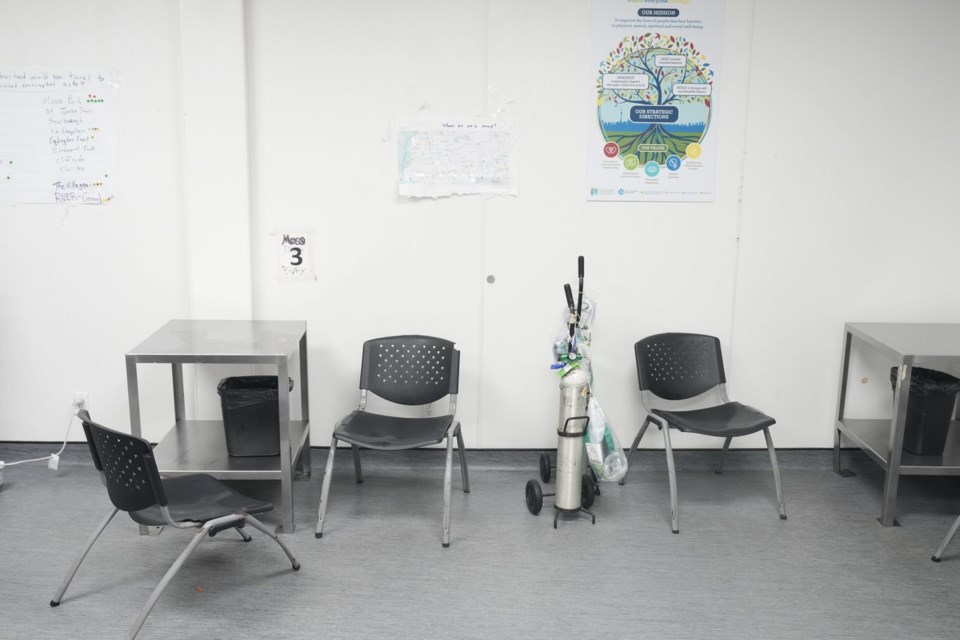TORONTO — Ontario tabled a bill Monday that aims to shutter 10 supervised consumption sites the government deems too close to schools and daycares.
The bill, if passed by Premier Doug Ford's majority Progressive Conservative government, would also require municipalities to get the health minister's approval to apply for an exemption from the federal government to launch new supervised consumption sites.
Health Minister Sylvia Jones said there is no situation in which she would approve a new one anywhere in the province.
"I want to be very clear, there will be no further safe injection sites in the province of Ontario under our government," Jones said at a news conference about the bill.
Previously, municipalities could apply directly to the federal government for consumption site approval and the province would be out of the loop.
Ontario is shifting away from harm reduction to an abstinence-based model and it intends to launch 19 new "homelessness and addiction recovery treatment hubs" — or HART hubs, as the province calls them — plus 375 highly supportive housing units at a planned cost of $378 million.
They are set to be operational by the end of March, which is when the 10 supervised consumption sites will close. The operation of those sites will not be extended even if the new hubs are not ready, Jones said.
The government deadline to apply for one of the newly minted homeless hubs passed in mid-October, and Jones said officials are now evaluating the applications.
"In a year from now, you will see HART hubs operationalized in the province of Ontario, 19 demonstration sites in total," Jones said.
"We will be able to assess the efficacy, the ability for those HART models to actually provide the services out of addiction and into treatment pathways."
The province will make it illegal to operate a consumption site within 200 metres of a school or daycare. In total, 17 consumption and treatment services sites across Ontario are funded by the province. Seven are allowed to remain open, but one site in downtown Toronto is likely to close this spring as the lease on its space is expiring as the building will be redeveloped.
Health-care workers, advocates and homeless people have all said consumption site closures would lead to more deaths.
In August, Jones disagreed, saying no one will die as a result of the closures.
On Monday at Queen's Park, harm reduction advocates again voiced their anger over the pending closures.
"We will see an overrepresentation of Indigenous people paying the price," said Mskwaasin Agnew of Toronto Indigenous Harm Reduction.
Zoë Dodd, with the Toronto Overdose Prevention Society, said she has seen plenty of death in her life.
"We have seen people dead outside, overdosing in bathrooms, overdosing on the street and that is exactly what's going to happen when these sites close," Dodd said.
Thursday's bill would also require municipalities to get provincial approval to participate in the federal safer supply program that sees doctors prescribe pharmaceutical grade opioids to those with substance-use disorders.
The measures are part of a community safety omnibus bill that would also implement several other recent announcements.
The legislation would significantly increase penalties for those convicted of using a fake vehicle identification number, as well as ban name changes for those on the provincial sex offender registry.
This report by The Canadian Press was first published Nov. 18, 2024.
Liam Casey, The Canadian Press




